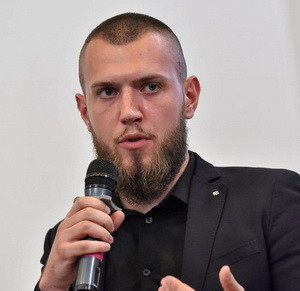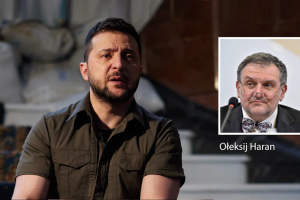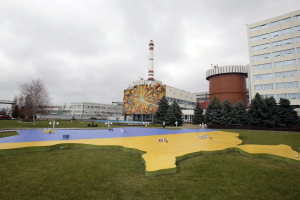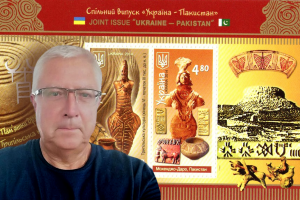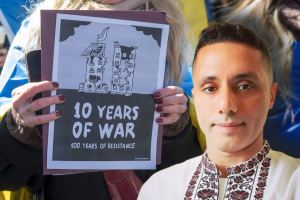How has Ukrainian society changed over eight years of Russian aggression and why does this matter given the current military threat?
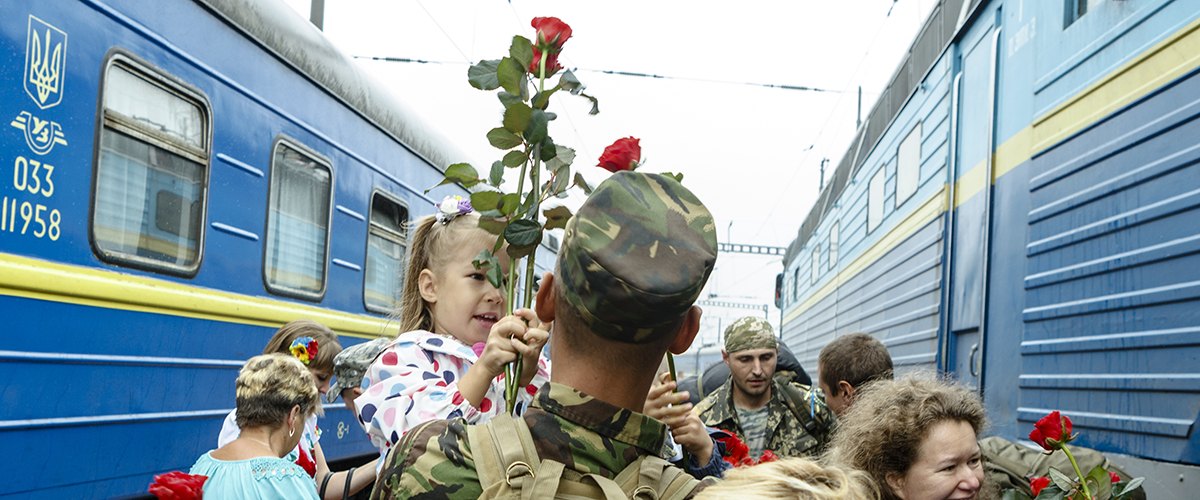
First publication of this piece is in German
For eight years now, the Russian Federation has been waging a hybrid war against Ukraine. In 2021, due to the accumulation of Russian troops on the Russian-Ukrainian border, the probability of a large-scale Russian invasion has significantly increased. Therefore, Ukrainians and the country's leadership have to plan for 2022 under conditions of existential and direct threats to Ukraine.
In order to assess the likelihood of the Russian leadership's decision to invade, and to anticipate Ukraine's behavior in such a situation, we need a deeper understanding of the changes that have taken place in Ukrainian society since the Revolution of Dignity and the Russian aggression after 2014.
How has the public consciousness of Ukrainians changed since 2014?
Russian aggression in 2014 dramatically changed the attitudes of Ukrainians toward Russia. From the early 2000s to 2013, Ukrainians were mostly positive about Ukraine's alliance with Russia. In 2014, however, the situation changed profoundly. In Ukraine there remained only about 20% of citizens who would have a positive attitude to such a geopolitical alliance.

.png)
Moreover, due to Russian aggression, the residents of the South and East of Ukraine, which historically were more Russified and economically tied to Russia, have a significantly lower opinion of Russia. Today only about 20% of the residents of these regions have a positive attitude to the idea of a political and economic union between Ukraine and Russia.
.png)
Also, young generation growing up in the South and East of Ukraine is educated in modern Ukrainian schools and universities, uses modern means of communication, and therefore is well aware of Russia's aggressive role in the current conflict in the Donbass. Therefore, young generation, even in the South and East of the country, is becoming increasingly pro-European.
.png)
Despite all attempts by the Russian leadership and propaganda to deny Moscow’s involvement, most Ukrainians in all regions are convinced that today there is a war between Russia and Ukraine.
.png)
In addition, Ukrainian society is becoming more and more mentally estranged from Russia. First of all, this is reflected in the interpretation of the events of common history. While Russia introduces criminal prosecution for equating the actions of the USSR and Nazi Germany in unleashing World War II, Ukrainians are coming to the realization that it was Hitler and Stalin's collusion that caused the start of the war.
.png)
Ukrainians also support the new language law. Most Ukrainians in all regions of the country believe that all citizens should master the state language, civil servants should conduct public communications in Ukrainian, and teaching in state educational institutions should also take place in Ukrainian, which is what the new law stipulates.
Even in historically more Russified regions of the South and East of Ukraine, half of the citizens who communicate in Russian at home consider Ukrainian as their native language, because their native language is a factor of their political identity.
After all, despite all the attempts of Russian propaganda to convince Ukrainians that Ukraine is an extremely inefficient state or even a failed state, the vast majority of Ukrainians are proud to be citizens of Ukraine. And in the face of Russian aggression, this pride has increased from an average of 45-50 percent before 2013 to a record 72 percent in 2021.
.png)
What do these fundamental changes in the public consciousness of Ukrainians mean for us, and how do they help predict developments in the wake of the escalating Russian threat?
Every year Ukrainian society becomes more and more estranged from the Russian one in its cultural and political identity, historical memory, its perception of Ukraine's foreign policy vector and what values should be the key ones in state building.
In such circumstances, Russia's ability to occupy and establish long-term effective control over Ukrainian territories is questionable. Especially when the population of these territories, as we have shown, is already mentally distant from supporting Russia.
This is the reason why Ukrainian society responded to Russia's attempts to intimidate Ukrainians not with submission and readiness for political concessions, but with a flash-mob called "Ukrainians will resist". According to a recent survey by the Kyiv International Institute of Sociology, about half of Ukrainians expressed a desire to resist in case of Russian military aggression. Almost one third of the residents of the South and the East (30% and 26%) said that they would resort to armed resistance.
Ukrainian public opinion and the state of the Ukrainian armed forces give reason to assume that Russian invasion forces would suffer unjustifiably high casualties in manpower and equipment in the event of an invasion. They will also face non-acceptance of the occupation by the local population and the need to spend large amounts of resources to maintain the occupied territories.
Moreover, unlike the conflict in Donbas, Russia will not be able to hide its involvement in the armed conflict, which will also lead to the application of political and economic sanctions against the Russian leadership and economy by Ukraine's Western allies.
All of these facts are important factors in deterring the Russian leadership from making a final decision on a military invasion in Ukraine.
What conclusions should Ukrainian political elites and Western partners draw from Ukrainians' public sentiments in the wake of Russia's possible aggression?
The above-mentioned factors will be an effective tool for deterring Russia, provided that Western partners support Ukraine and that political stability is maintained in Ukraine itself. Domestic political stability is essential for the effective and decisive application of the resources available to the Ukrainian state and society to counter Russia.
Because of the dramatic changes in the attitudes of Ukrainians toward the Russian Federation, most Ukrainians perceive Ukraine's political concessions to Russia as unacceptable. Providing CADLR (“certain areas of Donetsk and Luhansk regions”) with "special status", the amnesty for separatists, and the holding of local elections on the terms of the Russia are also unacceptable (see the graph below).
Any particular action by the Ukrainian government in this direction will be perceived by civil society as an unjustified concession to Putin and a treason against Ukraine's national interests.
Potential reaction of civil society to such steps of the Ukrainian government would be civil protests. Such protests have occurred before, when Andrij Yermak, president’s chief of staff, initiated the creation of consultative councils with representatives of the CADLR.
Therefore, Ukraine in its communication with Western partners should firstly insist that it is impossible to make political concessions without implementing the first article of the Minsk agreements on a cease-fire (which is systematically violated by the Russian proxies). And second, insist that Russia, which denies its involvement in the conflict and tries to force Ukraine to negotiate directly with representatives of the CADLR, must fulfill its responsibilities.
.png)
This tactic will allow Ukraine to avoid civil protests and internal destabilization. Nevertheless, even then, Russia will continue attempts to destabilize Ukrainian society through information attacks, inflaming internal contradictions (using the "Wagnergate", corruption scandals, and other issues sensitive to public opinion). Avoiding destabilization in such a case depends on effective communication between the authorities and civil society.
To sum up, the evolution of Ukrainian public opinion over the past eight years now serves as an effective factor in deterring a possible new wave of Russian aggression. However, it is true only if there are no unjustified political concessions by the Ukrainian government in the process of settling the conflict in Donbas and in case of effective communication between the government and society.

